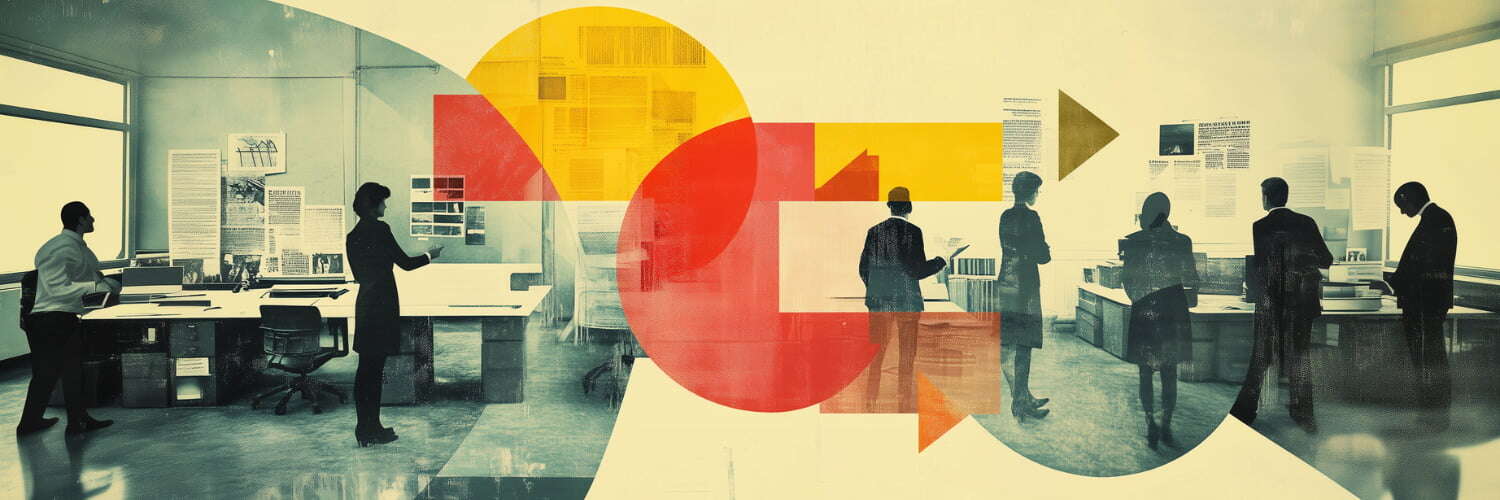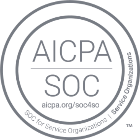Workplace dynamics are shifting faster than ever before, driven by technological advances, changing employee expectations and a growing emphasis on purpose-driven work. For HR leaders, 2025 is a time to reshape their strategies to meet the needs of a more flexible, values-oriented workforce while preparing for the challenges of the future.
This article looks at the 10 most influential HR trends and priorities that are most likely to shape talent management in 2025, and the actionable steps leaders can take to stay ahead.
TL;DR:
- Today’s employees seek inclusive, flexible cultures that prioritize well-being and purpose, turning workplaces into hubs of connection, belonging and personal growth.
- Hybrid work, people analytics, AI, and skill-based hiring are reshaping HR strategies to meet the demands of a dynamic workforce that must embrace innovation and new technologies if it wants to remain competitive.
- From ESG integration to emerging roles such as HR AI specialists, the HR trends of 2025 will require adaptability, innovation and purpose-driven leadership. Organizations that embrace these changes will be better equipped to manage the complexity of the modern workplace while meeting the needs of their employees.
10 HR Trends and Priorities Every Leader Should Know in 2025
HR is undergoing a transformation, with 2025 marking a pivotal year for rethinking how we manage people and workplaces. From leveraging technology to fostering a people-centric culture, HR leaders face the dual challenge of adapting to a rapidly shifting landscape while keeping employees' needs and values in mind.
This section looks at the key trends that will shape talent management in 2025 and offers actionable insights to stay ahead. These strategies are not just about managing change—they are about leading it.

Shaping the Human-Centric Workplace Culture
The workplace is no longer just a place where tasks are completed. It’s becoming a hub of connection, belonging and personal growth. Employees are increasingly looking for a culture that prioritizes wellbeing, inclusivity and flexibility, with a focus on fostering meaningful experiences.
Take Airbnb, for example. The company has redefined its workplace strategy to focus on employee wellbeing, autonomy and connectedness. By combining flexibility with meaningfulness, Airbnb continues to attract and retain top talent.
HR leaders must take the lead in creating a culture where employees feel valued. Initiatives such as mental health support, diversity, equity and inclusion programs and employee recognition systems are not optional, but essential for a successful company of the future.
Blurring Lines Between Physical and Digital Experiences
Hybrid work has shifted the way employees experience their workplace by creating a mix of in-person and virtual environments. In 2025, these experiences will continue to evolve, with organizations leveraging technology to integrate the physical and digital seamlessly.
Companies such as Cisco have embraced tools that enable hybrid collaboration, ensuring teams can work together regardless of their location. Innovations such as digital whiteboards, immersive meeting rooms and AI-powered collaboration tools make remote workers feel just as present as those on-site.
However, maintaining a balance between tech-driven solutions and meaningful human interaction is vital. Employees want connection, not just efficiency. Leaders must prioritize strategies that improve collaboration while keeping the human element intact.
Empowering Change Management
Change is no longer a rare disruption, it's an ongoing reality. HR leaders must become experts in change management to steer their organizations through continuous transformations, be it the integration of new HR technologies or organizational restructuring.
Equally important is helping employees develop resilience and adaptability so they can thrive in this dynamic environment. This isn't just about helping them manage immediate change, but also about fostering a mindset that embraces continuous learning and growth.
One example of this is General Electric’s transformation strategy. Through a combination of transparent communication, leadership coaching and employee engagement, GE was able to successfully manage cultural and operational change. The lesson? Change management is about taking people with you on the journey, not just announcing the destination.
HR Upskilling and Reskilling Initiatives
As industries evolve, so do the skills required to be successful. Upskilling and reskilling programs are no longer just “nice to have”; they are critical to remaining competitive.
Some companies are investing heavily in these initiatives. Amazon, for example, recently committed $700 million to upskill its U.S. employees for technology-oriented roles. The aim of this initiative is to equip them with the necessary skills to fill in-demand positions—while closing existing skills gaps in the workforce.
HR leaders must foster a culture of continuous learning in 2025. Whether through micro-learning platforms, mentorship opportunities or certifications, companies that invest in employee development will excel in innovation, retention and resilience.
Ensuring Performance in Hybrid Work Environments
Hybrid work is here to stay, but maintaining performance in such setups requires new frameworks. The days of relying on “face-to-face" ” are over. The focus is now on results and accountability.
Companies like Spotify have paved the way by focusing on clear expectations and results-oriented evaluations. Managers are being trained to lead hybrid teams effectively by promoting trust and accountability through regular check-ins and transparent goal setting.
HR can also play a key role in developing equitable systems that support hybrid employees, such as robust onboarding for remote workers and platforms that enable seamless collaboration. The focus should always be on outcomes, not micromanagement, so teams can succeed from anywhere.
Enhanced Use of People Analytics and Data-Driven Decision-Making
Data has become HR’s most powerful ally, offering insights into everything from employee engagement to retention risks. In 2025, people analytics will continue to drive strategic decisions and transform HR into a proactive, insight-driven function.
PepsiCo, for example, uses predictive analytics to predict and respond to emerging trends and identify high-potential talent. These insights help leaders effectively allocate resources and make informed decisions that improve the health of the business.
Transparency and ethical use of data remain critical. Employees must be able to trust that analytics serves their interests and fosters a collaborative environment where data enhances, rather than exploits, the employee experience.
Skill-Based Hiring Over Job Titles
Traditional hiring based on roles and titles is giving way to a skill-based approach that allows companies to tap into a more diverse and adaptable talent pool. Recruiters need to rethink job descriptions and interview processes to accommodate this trend.
By prioritizing potential over pedigree, companies can build agile teams that are ready to tackle new challenges. A great example here is Google, who has shifted its hiring focus to the applicant’s personality, creativity, leadership capacities rather than strictly looking at academic qualifications or specific work experience.
The company’s hiring process places a strong emphasis on assessing an applicant's problem-solving skills, critical thinking and adaptability, which helps them recognize diverse talent that may have otherwise been overlooked. This strategy has allowed Google to build teams that are both highly skilled and able to thrive in a rapidly changing environment.
Unlocking the Secrets to Attracting Gen Z Talent
Gen Z, the first digitally native generation, brings unique expectations to the workplace. They value authenticity, flexibility and a sense of purpose, seeking employers who align with their values.
Brands like Patagonia have successfully attracted Gen Z talent by championing sustainability and corporate social responsibility. Similarly, flexible work policies and career development opportunities resonate with this generation’s desire for balance and growth.
To attract and retain Gen Z employees, HR leaders need to ensure that their company values are not just slogans, but a lived reality. Transparency, social impact and meaningful work are non-negotiable for this group of talent.

Integration of Artificial Intelligence (AI) and Automation
AI is revolutionizing HR, automating repetitive tasks and enabling smarter, faster decisions. In 2025, AI tools will play an even more important role in areas such as recruitment, training and employee engagement.
One example is Hilton, which uses AI to streamline its hiring process for entry-level positions and match applicants with roles that match their skills and preferences. The result? A streamlined hiring process that improves both efficiency and the candidate experience.
However, the potential of AI also comes with responsibility. Recruiters must ensure that AI is used ethically to avoid bias and ensure transparency. AI should complement, not replace, human decision making and foster a collaborative partnership between technology and talent. Forward-thinking companies are also integrating LinkedIn recruiter automation to streamline outreach and personalize engagement at scale, allowing HR professionals to focus more on meaningful candidate interactions.
Environmental, Social, and Governance (ESG) Integration in HR
As companies place increasing importance on ESG goals, HR plays a central role in implementing these initiatives. From sustainability programs to DEI strategies, HR professionals are at the forefront of creating purpose-driven workplaces.
Unilever’s commitment to ESG is a shining example. Unilever's Sustainable Living Plan integrates environmental and social goals into every aspect of its business, including employee engagement and development.
By integrating ESG into HR, companies can consider the values of their employees while enhancing their reputation. Purpose-driven companies are not only ethical, but also more competitive in attracting top talent and loyal customers.

Bonus: A Glimpse Into Future HR Roles
HR is evolving from an administrative function to a strategic powerhouse that drives innovation and cultural change within organizations, regardless of size. This transformation has already led to new roles that are aligned with the changing demands of the workplace, such as:
- Data scientists and machine learning engineers who develop predictive models to analyze workforce trends and help companies anticipate turnover, identify growth opportunities, and implement proactive strategies. By leveraging data and advanced algorithms, they provide actionable insights that enable HR teams to effectively address workforce challenges and make data-driven decisions. This approach ensures that HR stays ahead of trends and develops smarter talent management strategies.
- Organizational psychologists and business strategists who align organizational structures with business goals to promote innovation and resilience. By crafting people-centered strategies that prioritize employee well-being and engagement, they help organizations adapt to new challenges and thrive in a competitive environment. Their insights ensure that workforce dynamics drive both employee satisfaction and long-term business success.
- Change management experts and communication specialists who guide teams through transitions with empathy and clarity, playing a vital role in minimizing disruption. By encouraging open communication and providing clear guidance, they ensure that employees remain motivated and productive. Whether managing restructuring efforts, implementing new technology or driving cultural change, their expertise helps to maintain morale and support the workforce through the complexities of organizational change.
- HR AI specialists and technologists who are critical to integrating advanced tools into HR processes, automating repetitive tasks and improving data-driven insights. By using AI-driven tools, they enable HR teams to focus on strategic initiatives, such as talent development and organizational planning. Their work not only improves efficiency, but also ensures that decision-making processes are based on accurate, real-time data, ultimately leading to a more agile and competitive organization.
These roles highlight HR's transformation into a key driver of business success. And who knows what’s coming next?
Is Your Workplace Ready for 2025?
The trends that will shape HR will emphasize adaptability, innovation and a people-centric approach. Whether you’re an HR leader or an employee, assessing your organization’s readiness is critical to succeeding in the future of work.
The Modern Workplace Index from YAROOMS offers a comprehensive evaluation across five key pillars: people, spaces, technology, data and sustainability. This framework can help you gain valuable insights into how well your organization integrates these aspects within and beyond the office.
The index provides a detailed assessment and personalized recommendations for improvement, helping you identify areas for growth and ensure your workplace is truly equipped for the challenges ahead. Don’t wait—try it today and take the first step towards a more adaptable, future-ready organization.










